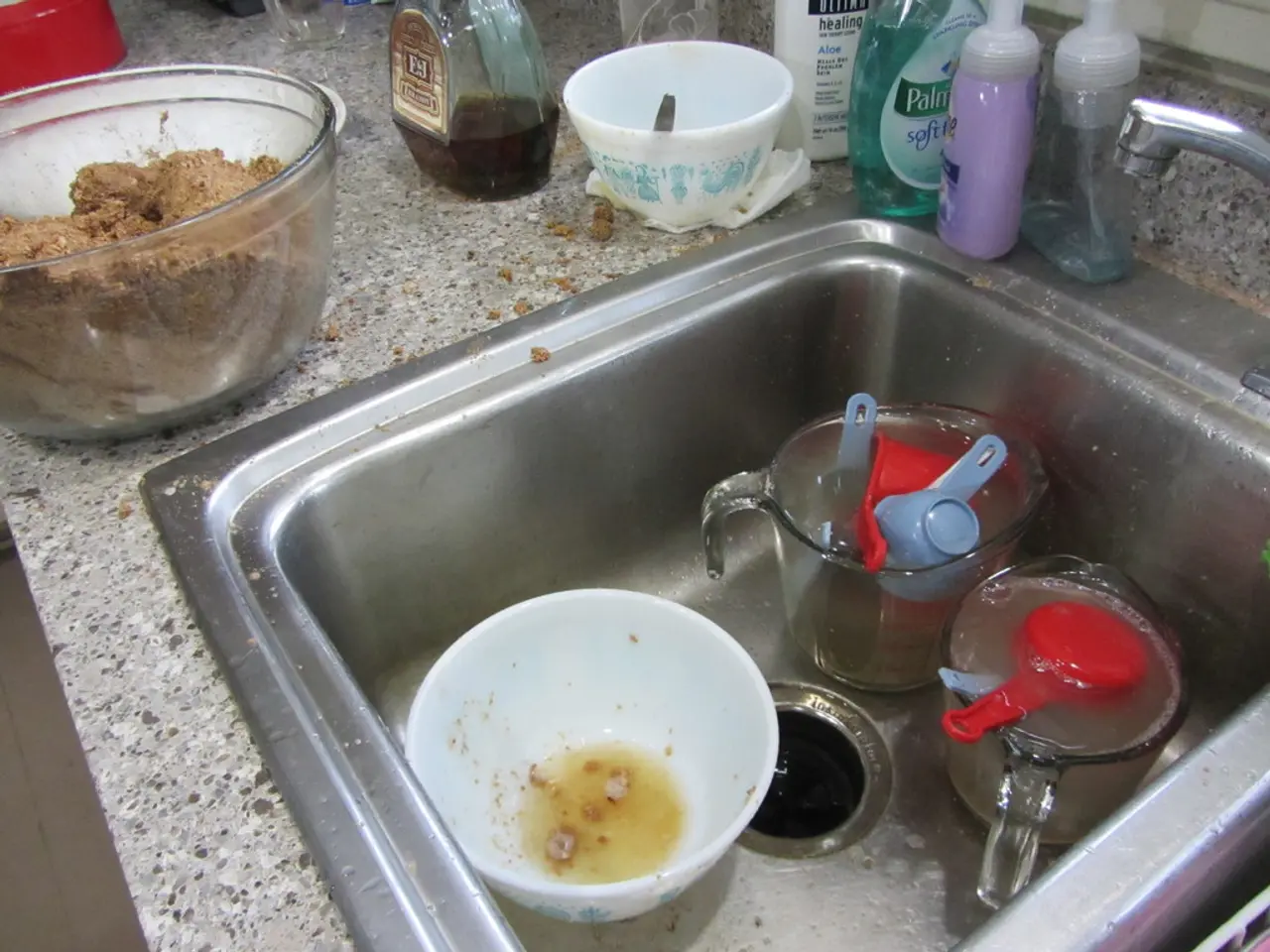Impairment of the Immune System from Excessive Cleanliness?
In the midst of the COVID-19 pandemic, it's crucial to separate fact from fiction when it comes to maintaining good hygiene and boosting our immune system.
Firstly, let's address a common concern: frequent hand-washing and disinfecting does not weaken the immune system. On the contrary, regular hand hygiene is a well-established, effective measure to prevent the spread of infectious diseases, including COVID-19 [1][3]. Proper handwashing with soap and water for at least 20 seconds helps remove germs and reduces illness transmission without harming the immune system [1]. Hand sanitizer is a good alternative when soap and water are unavailable.
The hygiene hypothesis, which suggests that children exposed to more viruses, bacteria, and other pathogens early in life may develop stronger immune systems, is theoretically plausible, but there is not a lot of strong science behind it [4]. In adults and children, routine hygienic practices are not believed to undermine the development of immune tolerance [4].
Stress, however, can have a significant impact on our immune system. When we're stressed, our bodies produce a hormone called cortisol, which can lead to inflammation and reduce our ability to fight off infections [2]. Finding ways to manage stress is essential for maintaining a healthy immune system.
There are other factors that can affect our immune health as well. A well-rounded diet with ample amounts of fiber and healthy fats help keep inflammation at bay [5]. Regular exercise is also beneficial for keeping our immune system running smoothly [6]. Getting enough sleep is crucial too; the average adult needs about seven to nine hours of sleep a night [7].
It's important to note that smoking and excessive drinking can weaken the immune system [8]. The 2019 novel coronavirus has led to increased consumption of soap and disinfectant wipes, but overdoing it can leave your skin dry or cracked, so you might want to add a good moisturizing lotion to your hand-washing routine [9].
In the ongoing debate about the hygiene hypothesis and the role personal hygiene plays, it's clear that hand hygiene does not weaken immunity; it prevents infection and is a critical public health measure to reduce the spread of COVID-19 and other contagious diseases [1][3][5]. The CDC recommends washing your hands with soap and water after being in a public place or after blowing your nose, coughing or sneezing [10]. They also recommend regularly cleaning frequently touched surfaces in your household [11].
Dr. James Fernandez, an allergist and immunologist, states that there is no scientific evidence to suggest that temporarily increasing cleaning is dangerous to immune health [3]. So, let's continue to prioritize hand hygiene and other healthy habits to protect ourselves and others during these challenging times.
References:
[1] Centers for Disease Control and Prevention. (2020). Handwashing. Retrieved from https://www.cdc.gov/handwashing/index.html
[2] American Psychological Association. (2019). Stress and the immune system. Retrieved from https://www.apa.org/topics/stress/immune
[3] Fernandez, J. (2020). Hand hygiene and the immune system: Separating fact from fiction. Retrieved from https://www.npr.org/sections/goatsandsoda/2020/03/27/820294688/hand-hygiene-and-the-immune-system-separating-fact-from-fiction
[4] Strachan, D. P. (1989). Hygiene hypothesis. The Lancet, 334(8667), 1253-1254.
[5] National Institutes of Health. (2020). Immune system. Retrieved from https://www.nih.gov/health-information/immune-system
[6] National Institute on Aging. (2017). Exercise and the immune system. Retrieved from https://www.nia.nih.gov/health/exercise-and-immune-system
[7] National Sleep Foundation. (2015). How much sleep do we really need? Retrieved from https://www.sleepfoundation.org/articles/how-much-sleep-do-we-really-need
[8] Centers for Disease Control and Prevention. (2020). Smoking and tobacco use. Retrieved from https://www.cdc.gov/tobacco/data_statistics/index.htm
[9] American Academy of Dermatology. (2020). Hand care during the COVID-19 pandemic. Retrieved from https://www.aad.org/media/news-releases/common-skin-concerns-during-covid-19-pandemic
[10] Centers for Disease Control and Prevention. (2020). Clean hands save lives: When and how to wash your hands. Retrieved from https://www.cdc.gov/handwashing/when-how-handwashing.html
[11] Centers for Disease Control and Prevention. (2020). Cleaning and disinfection for community facilities. Retrieved from https://www.cdc.gov/coronavirus/2019-ncov/community/disinfecting-building-facility.html
- The science of nutrition recommends a well-rounded diet with ample fiber and healthy fats to keep inflammation at bay and promote a healthy immune system [5].
- Incorporating fitness-and-exercise regularly is beneficial for maintaining a well-functioning immune system according to studies [6].
- Maintaining good mental-health can play a significant role in preserving immune-health as excessive stress can lead to inflammation and weaken the body's resistance to infections [2].
- Ensuring a balanced diet, regular exercise, adequate sleep, and stress management are all considered as essential practices for promoting overall health-and-wellness during these challenging times.




